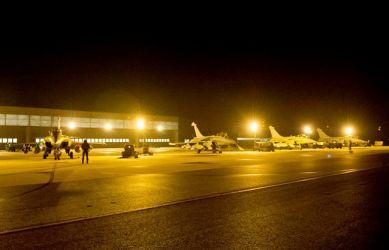Malian Islamist Rebels Advance Despite French Air Strikes

A joint Malian-French military offensive to prevent Islamist rebels from expanding their control of Mali, once seen as a democratic model in West Africa, entered its fourth day on Monday, with an official saying that advancing rebels linked to al Qaeda who have been in control of the northern part of the nation have captured a town in Central Mali.
French Defense Minister Jjean-Yves Le Drian said, however that rebels have taken control of the central town of Diabaly, according to French BFM television via France 24.
Le Drian said on Sunday that France was compelled to act to stop the Islamist offensive, saying it could allow "a terrorist state at the doorstep of France and Europe." Attacks have included French airstrikes aimed at destroying rebel strongholds.
French President Francois Holland said on Friday that the nation's operation would last "as long as necessary," with the aim of protecting Malian citizens and the 6,000 French nationals estimated to be in the country. French Defense Ministry officials said Mali's army retook control of the central city of Konna a day after rebels took control. The city is located 375 miles northeast of Bamako.
In March, rebels in the north declared most of the northern part of the sparsely populated northern region an independent state.
Mali, which is home to more than 12 million people, is primarily an agrarian country which is often vulnerable to drought and increasing food prices, according to humanitarian organization Christian Aid. A military coup overthrew the nation's president in March 2012. Rebels have been joined by Islamist military groups and mercenaries returning home after fighting for the Gaddafi regime in Libya, the agency notes. Various organizations work in the nation to support families to grow food and adapt farming techniques to become self-sufficient.
Mali, whose population is 90 percent Muslim, was recently cited by anti-persecution group Open Doors as No. 7 in its Top 50 Persecuted Countries for Christians. Open Doors spokesman Jerry Dykstra said last week that the situation in the north "used to be a bit tense but Christians and even missionaries could be active. Currently the situation in northern Mali is somewhat similar to Saudi Arabia. Christians are simply no longer allowed to be there."